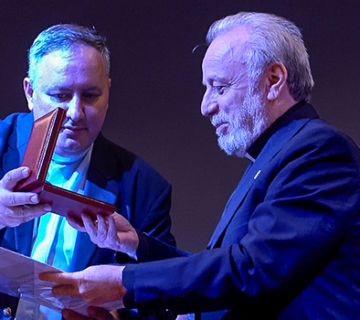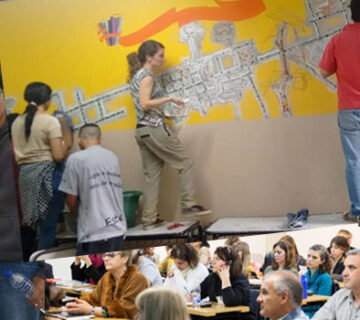
Following the success of the first presentation and study of the Economy of Communion project, the Focolare Movement proposed a second edition of the event for anyone interseted in learning more.
The gathering took place in the Focolare’s permanent Mariapolis in Puebla, Mexico. More than a hundred people attended from the United States, Argentina, Costa Rica, Brazil, Italy and several regions of the Mexican Republic. There were a large number of young people, students and business owners, whose liveliness brought the hope of a promising future for the EoC’s development in Mexico.
This second edition of the congress, held on August 24th and 25th, the contribution of several specialists and business owners whose businesses belong to the EoC were presented.
 The meeting entitled “Persons and Communion for the Establishment of a New Economy”, also featured the presence of John Mundell, member of the international commission of the EoC, who has successfully implemented the the EoC model in his own business, Mundell & Associates Inc.
The meeting entitled “Persons and Communion for the Establishment of a New Economy”, also featured the presence of John Mundell, member of the international commission of the EoC, who has successfully implemented the the EoC model in his own business, Mundell & Associates Inc.

This North American business owner highlighted the more than hundred businesses in the world that belong tot he EoC economic model, with a strong presence in Europe and worthwhile development in Latin America and Africa. During his presentation he gave the first launch to the The Company Cube in its Spanish version. It is a fun tool that helps to live the lifestyle of the EoC in one’s own daily life.
Argentine business owners Monica Salazar (Nogales Maderas), German Jorge (Dimaco S.A.) and Francisco Cervino (Sushi Soul), presented how they adhere to the dictates of this economic model. Then several business owners and young people from Mexico shared the challenges and concerns they daily face in their work environments, and they showed how the EoC is a key way for contributing to a more just economic order in the world.
The main aim of the Economy of Communion (EoC) is that of helping to create a more fraternal and supportive society, with businesses as the cornerstones of this endeavor. As they are consolidated, these businesses create jobs and make free decisions to put the profits in common in support of people in poverty, and the spreading of a culture of giving and communion, through the promotion of educational and cultural projects and initiatives.
Christopher Jimènez


 Italiano
Italiano Español
Español Français
Français Português
Português



No comment